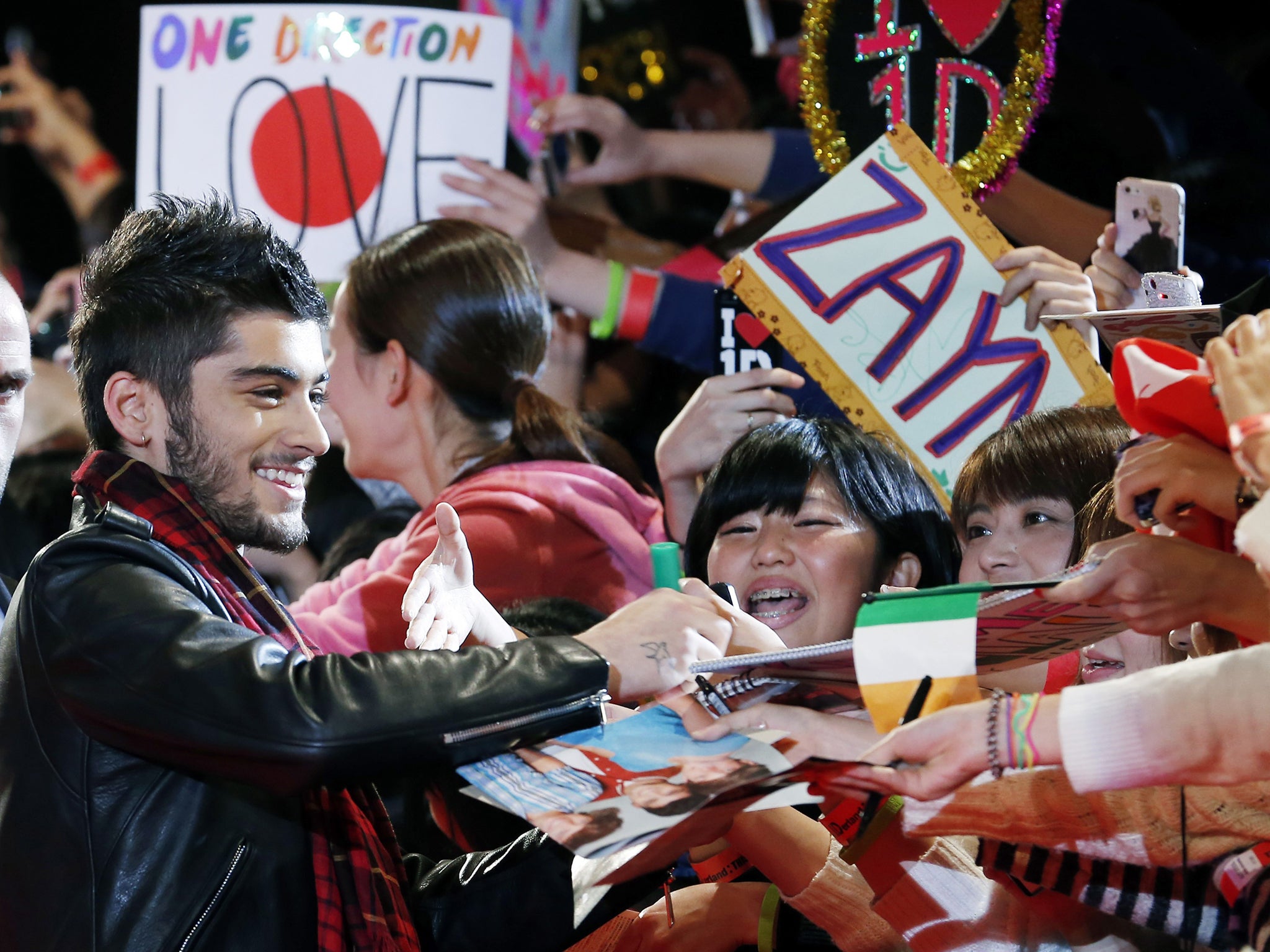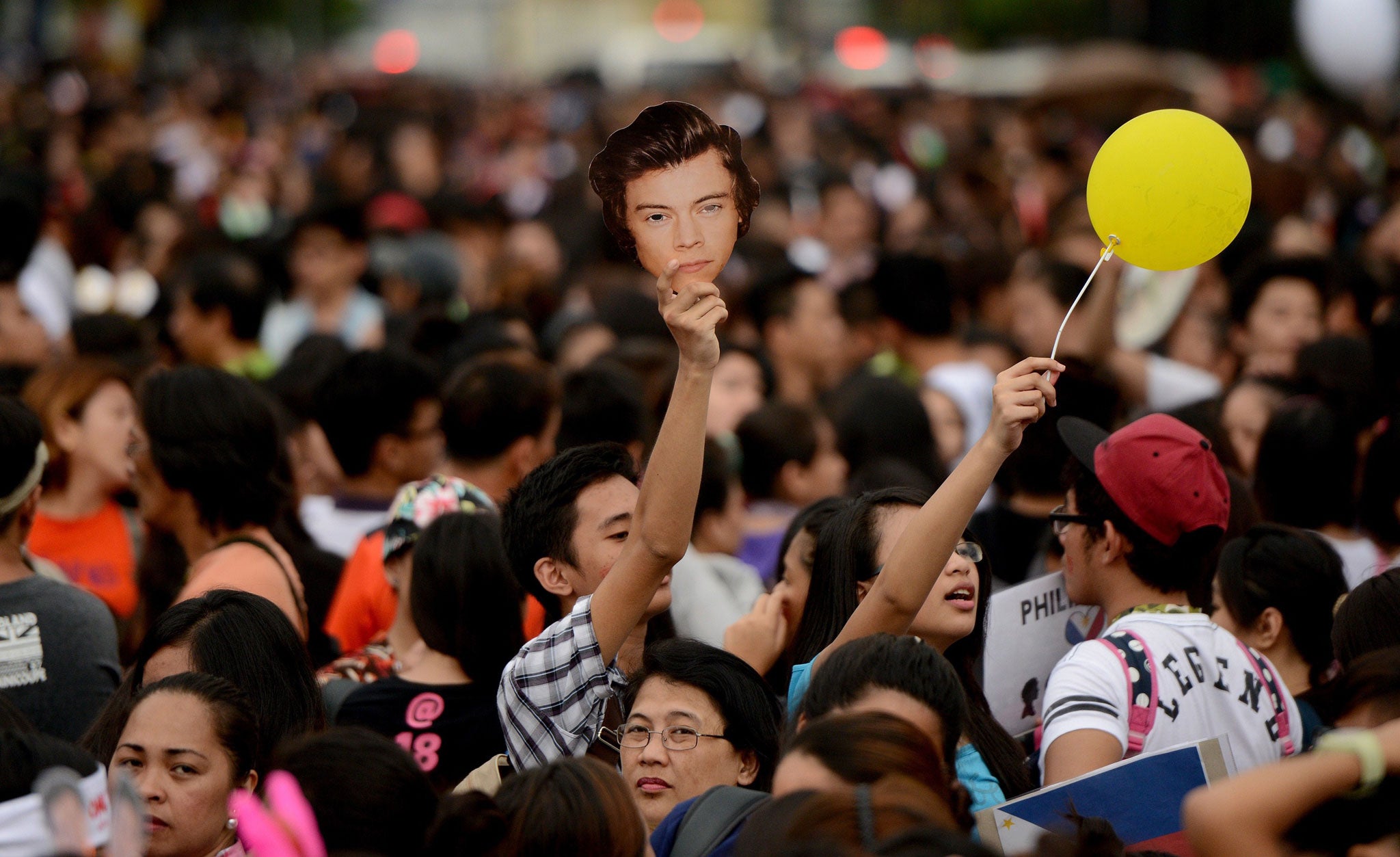The distress of some Zayn Malik fans is real, and they need support, say experts
Grief over Zayn Malik's exit from One Direction seemed amusing until a hashtag that appeared to promote self-harm emerged

Your support helps us to tell the story
From reproductive rights to climate change to Big Tech, The Independent is on the ground when the story is developing. Whether it's investigating the financials of Elon Musk's pro-Trump PAC or producing our latest documentary, 'The A Word', which shines a light on the American women fighting for reproductive rights, we know how important it is to parse out the facts from the messaging.
At such a critical moment in US history, we need reporters on the ground. Your donation allows us to keep sending journalists to speak to both sides of the story.
The Independent is trusted by Americans across the entire political spectrum. And unlike many other quality news outlets, we choose not to lock Americans out of our reporting and analysis with paywalls. We believe quality journalism should be available to everyone, paid for by those who can afford it.
Your support makes all the difference.There's a popular online fan fiction series among Directioners (the fans of One Direction) called "#Imagine". One such story meme invites you to wonder what it would be like if you were going out with Zayn Malik, the recently departed boyband member with very good hair. You're in hospital because you need a heart transplant. Zayn has accompanied you. (Sssshhh; imagine.) He waves you off into surgery and tells you he'll be in your heart for ever. After the operation you run out only to be told that the heart you received was actually from Zayn. He had died for you.
So when Malik announced on Wednesday that he was leaving the band, many were primed ready to point and laugh at the 13-year-olds who were vlogging their tears. For those who had given Simon Cowell's group little thought, the outpouring and hysteria was kind of amusing.
But, then, the hashtag #cut4Zayn started trending on Twitter. People started uploading pictures of self-harm, claiming they had done it in protest; in solidarity; to manifest physically the pain they felt. And all of a sudden, teen fandom didn't seem quite so funny any more.
So how serious is it for young people when someone leaves their favourite band? Sam Challis, the information manager for Mind and a mental-health expert, insists we should all be a little kinder to those upset over the news.
"For people of a certain age, it may not seem like it should be a big deal," he says. "But for those going through it, they are experiencing a real sense of loss. It's probably akin to the death of a pet or a distant relative. It's quite natural. And it should be seen the same way. It's a stress and grief reaction to something. If it's a big part of someone's life then it is totally reasonable and right that they'd be upset about it."
Challis suggests that, while there would be exceptions, most people who would exhibit such behaviour are likely to have issues anyway.
"It's probably not worth dwelling too much on what triggers it. The point is that they're unwell and they need support."
Indeed, numerous charities have put out statements, the Samaritans are on standby, and The Sun has launched a helpline to help fans to deal with their sadness. And on a less serious – but still somewhat astonishing – note, the Manchester Evening News reported that more than 220 calls were made to a Manchester-based employment law expert in the aftermath of Malik's announcement, enquiring about what qualifies for compassionate leave from work.

It's not the first time fans have had such a drastic reaction to a band member leaving. There was Brian McFadden and Westlife. Before that, Geri Halliwell and the Spice Girls. The big one in living memory was Robbie Williams walking out on Take That. Yes, ChildLine opened a special number for upset fans, but the outpouring for Malik appears to be much more heightened.
The difference between then and now is social media, which tends to fuel the hysteria.
"Social media can help people who feel isolated, or have mental-health problems, speak to others who share their experience," Challis says. "But it can in some circumstances be a bad thing. With self-harm, any mental-health problem, really, you need to be careful about what they're accessing. It doesn't matter what the trigger is; the main thing is to be supportive."
Join our commenting forum
Join thought-provoking conversations, follow other Independent readers and see their replies
Comments